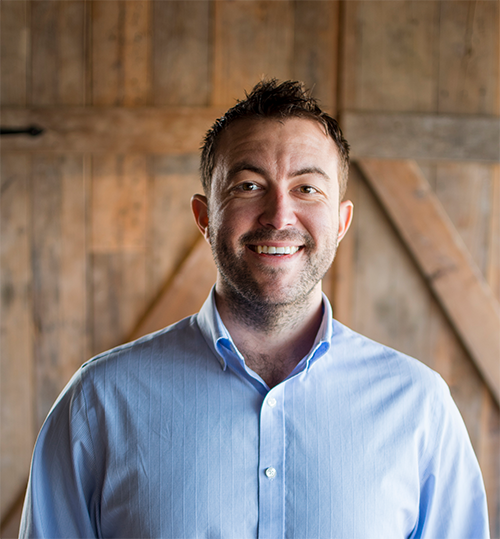I live in a world of spirit.
Each day I am sober is miraculous and terrifying.
Each day I am sober should not be.
I am a ghost who walks and breathes.
***
I am in the cafeteria of an inpatient rehab that locks its doors at night and lets the residents lie in beds, their bodies flushing dope from their veins while its remnants coil about their hearts, waiting for its freedom to whisper for more.
I smell chlorine and old meatloaf. The walls are pale yellow and covered with miniature murals, paintings upon the painted walls of laughing, smiling people, beautiful frames glued around the murals to make them seem more than they are.
They were painted by former residents.
How many of them are dead now?
How many ghosts walk these halls?
I am speaking to a dozen addicts and alcoholics about what it’s like to be sober. They twitch and stir on their cheap plastic chairs, but some stare at me with eyes as wide as God. I tell them life is better this way—no dope, no alcohol.
I know it is true.
But I feel I am lying.
The man across from me—Chuck—has been sober for years, his body like a whip, every inch of him carved and solid. He tosses black hair out of his face and interrupts me to say his life is wonderful. I nod, knowing that he is lying, that he is miserable.
But he has not always been miserable.
I know from what he suffers.
A dopeless life grinds.
I am out of breath, my heart pounding. I am almost yelling, waving my arms in wild circles, the passion for this thing that is sobriety overwhelming me. I curse dope, curse people who don’t understand, curse the disease, implore these soon-to-be ghosts to speak to me before it is too late.
They clap when I finish speaking. We hold hands together and pray to some rough god I do not believe in. One by one, they shake our hands, tell us how hard the truth has hit them, and walk out the door.
Not a single one asks what to do next.
Chuck and I shake our heads, find the nurse to release us from this prison.
We walk into the dark, rainy parking lot and take off our visitor’s stickers, put up our hoods against the cold of Texas winter, complain about incomes and presidents, taxes and women and our inability to commit suicide, complain about our jobs that pay us well, our bosses who take care of us. We laugh at the pain of those addicts locked away for their own safety.
I weep as I drive home, wondering if I must call a psychiatrist again, slamming my fist against the steering wheel at the thought of more doctor’s offices, more pills that will do unfixable things to my mind and body, that will take from me my creativity, my speech.
I have no choice in this.
My will is not my own.
I will do anything not to go mad again.
The stakes are higher now.
So much to lose.
I will never go back to dope.
I’d rather a bullet to the skull, a plastic bag of helium over the head, rubber bands digging red rings into the flesh of my neck as I pass from this world to the one of ghosts.
What will they do with me, these ghosts who follow me from room to room? What will they do with my spirit when finally it passes to their realm?
***
My wife is asleep when I get home, the huge two-story house empty and silent, the walls shining white as soft moonlight flows through the great windows in the living room. I must work in the morning, must spend hours and hours completing tasks meaningless to me, work I despise not for what it is, but because it is not this work.
This work I was born for.
I climb the stairs to my office, struggling to keep my eyes open. I have no choice but to write. I cannot live with myself if I do not give to these rough gods their due.
I stare at blank pages and fill them with words and hate what they say.
I read rejection letters and weep and sleep.
I wake to work in my home office at this job I hate. I thank my ghost for keeping me sober each day and giving me this job everyone I know is jealous of, this job that lets me work as I will and sleep in a bit and not commute and wear a robe all day and work at my own pace and choose how I work, this job that is magnificent, that I have not an ounce of gratitude for and feel I never will.
I pray and tell my ghost that it is a bastard, that it has kept me sober only for suffering, a punishment for my sins.
I once had escapes from the world.
Now I have none.
I wonder how many days I can go before I eat a bullet.
Three years ago, I told a girl in a psychiatric facility that my anxiety and depression had been lifted.
“Can I have my mind back?” she asked me, eyes wet and red.
I nodded.
It was true then.
It is not true now.
***
I get done with work early, another glorious benefit to this job. I open my blinds and look out at the beautiful sunlit world of my neighborhood, at hawks diving through the sapphire sky, at grass green and thriving and children playing in empty streets and the little creek that bubbles behind my house, and I wonder why I cannot be a part of it.
I call a psychiatrist.
I call a therapist.
Things change.
I get serious about exercise. I pray and pray and pray. I use the absurd amount of money I earn from the wonderful job I despise to pay for health care I once couldn’t afford, that 80% of those poor bastards in that rehab couldn’t afford.
My psychiatrist and I sit and speak week after week. I outline in great detail the corruption in my mind. She prescribes me pills. I release my fear that they will steal my mind from me, eat them as I’m told.
My therapist I speak to more often. He speaks to me of Kierkegaard and Sartre and Nietzsche and Frankl. I tell him I know little of them. He speaks to me of the convolutions of thought that lead me to ruin. We speak of my obsessions, my compulsions.
Weeks go by.
I get better.
***
I have done this before. A dozen times I have done this. I tire of my brain and its idiocy. I tire of doing well, knowing the reason for it, and convincing myself the medication is no longer necessary, that the SNRIs will ruin my creativity. I tire of shutting off every light in my house, checking each lock three times, checking the coffee warmer four, driving away, turning around, unlocking the house, and doing it all again.
I tire of the repetition and my repeated failure to learn.
I venture into the world again, but still I am ill.
My parents take me to dinner at a restaurant that is far too expensive. I do not pay. I tell them their genes are rotten, that they never should have had children. They tell me I am wrong, that I am so smart. I list the diseases they have bequeathed me. They tell me I am too negative, too hard on myself. They change the subject. I let it go, wishing I could be like them, wishing I could see the good.
I wonder at the ghost in my heart, the one who will not let me die, who drives me through this world of spirits, who clings to a life that rarely seems worth the trouble.
I must go on, haunting this broken body, haunting the memories of those I hurt, haunting the ghosts of the dead, haunting those halls of addicts, telling them it will be better one day.
Maybe it will be.


